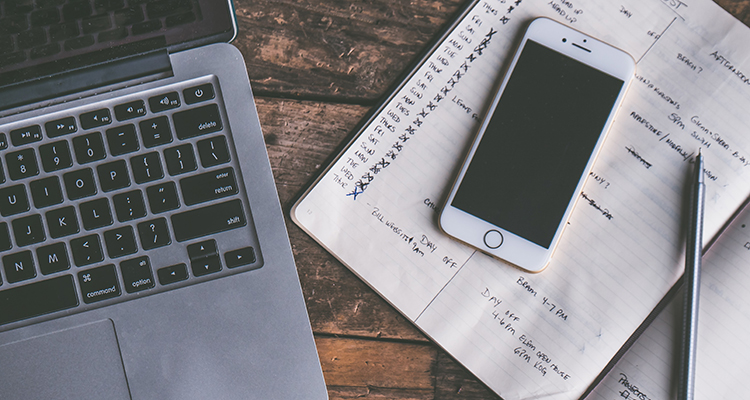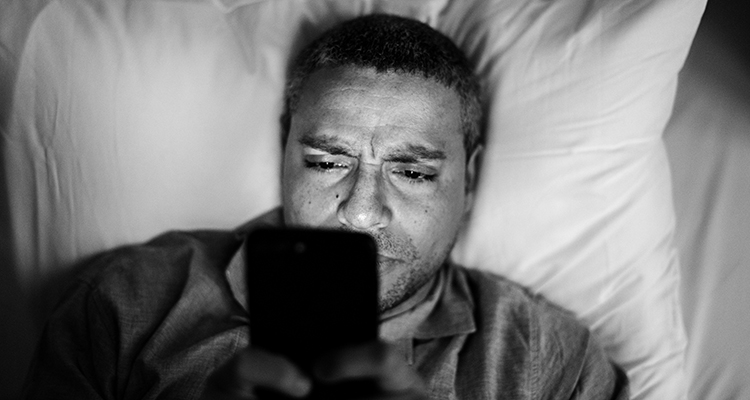How Developing a Routine Helped With My Sleep
by Kat Rowe | November 18, 2021
Author Bio: Gabie Lazareff is a certified health coach, yoga teacher and freelance nutrition & wellness writer. Writing for Somnus Therapy, the online sleep therapy platform, Gabie is educating readers about the importance of sleep not just to survive, but to thrive.
We often don’t realise how damaging our behaviours are until they significantly impact our lives. Sometimes, it takes a proverbial slap in the face for you to wake up and smell the roses. Or, in my case, to finally fall asleep.
I’m sure we’re all guilty of playing video games with friends or binge-watching Netflix until the wee hours of the morning. All the while wondering why we can’t fall asleep. Sadly, this was me every night.
It wasn’t until I fell asleep at work and nearly lost my job that I realized I needed a sleep solution. After researching sleep routines I learned a lot about what behaviors can disrupt your sleep. Armed with this knowledge, I started making small changes to my routine that made a big impact on my sleep quality.
Developing a sleep routine transformed my life in so many ways. I’m hoping my journey can help you make some positive changes in your life too.

What is a Sleep Routine?
A sleep routine is a pattern of behaviors that help prepare you for sleep. These behaviors are similar to eating dinner at the same time every night or setting a morning alarm. In time, these behaviors become habits. You can establish a sleep routine the same way. By performing the same behaviors each night around the same time, you eventually develop a pattern.
Unhealthy Habits that Don’t Promote Sleep
Everything you do from the moment you wake up until the time you go to bed affects your sleep. Here are just a few examples of how I was sabotaging my own sleep without even realizing it.
Erratic Sleep Schedule
I never went to sleep at the same time. Some nights it was 10:00 p.m. and others it was 1:00 a.m or later. This erratic schedule carries over into the morning, disrupting my entire day. Some days, I’d sleep through my alarm or be late for work. On weekends, I’d sleep until noon. I had no idea this was affecting my body’s circadian rhythm (sleep cycle).
Screen Time Before Bed
Video games, Netflix, and Facebook were my three vices before bed. Activities that I thought were helping me relax and destress, were actually keeping me awake. The blue light from digital screens prevents your brain from releasing the sleep hormone melatonin. The constant stimulation from digital devices at night can interfere with your brain’s ability to prepare for sleep.
Overstimulating Environment
My bedroom was where I did everything from watching TV to checking emails and even eating. And I did most of it while sitting in bed. Your bed should be reserved for sleep and sex only. By bringing outside activities like working or eating into your bed you’re confusing your brain into thinking it’s okay to be awake.
Staying in Bed Awake
I can’t tell you how often I lay in bed staring at the ceiling, changing sleep positions, and checking the clock. The longer it took to fall asleep, the more stressed I’d become. I quickly learned you can’t will yourself to sleep. The harder you try, the harder your body fights back.

Healthy Behaviors that Promote Sleep Quality
Once I realized that most of my nighttime behaviors were sabotaging my sleep, I started making minor changes. While these may not be sleep solutions for everyone, here’s what worked for me!
No More Screen Time
The hardest change I made was ditching my digital devices one hour before bedtime. That meant no TV, video games, or phone. Instead, I started reading books, writing in my journal, and meditating. A hot cup of chamomile tea before bed is another way to relax and promote sleep.
Establish a Sleep Schedule
You’re never too old to have a set bedtime. I started going to bed at 10:00 p.m. every night and setting my morning alarm for 5:30 a.m. during the week. I try to stick to this schedule even on weekends. Now, I find myself waking up before my alarm and getting tired around 9:30 p.m. which are signs that my circadian rhythm is working!
Create a Comfortable Sleep Environment
I’ve transformed my bedroom into an oasis for sleep. I added a sound machine and bought room darkening shades. I also purchased a firmer pillow and softer sheets. Now, I only get into bed when I’m tired enough to sleep. If I’m awake for more than 15 minutes, I get up and perform a short meditation or write in my journal until I feel ready for sleep.
No two sleep routines will look the same. How do you sleep now and what changes can you make to promote healthy sleep habits? Remember, these changes take time but consistency is key and will pay off in the end.

